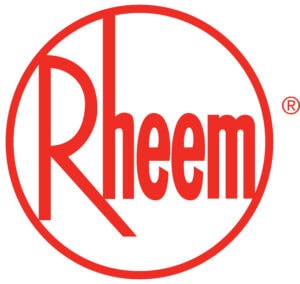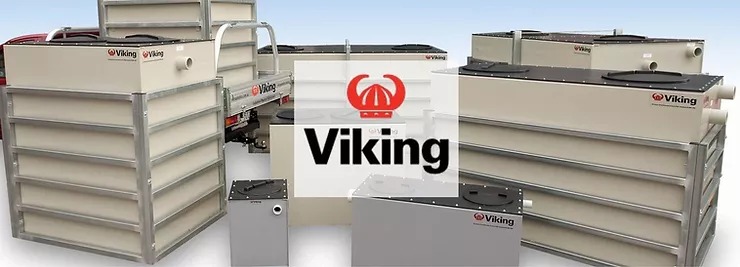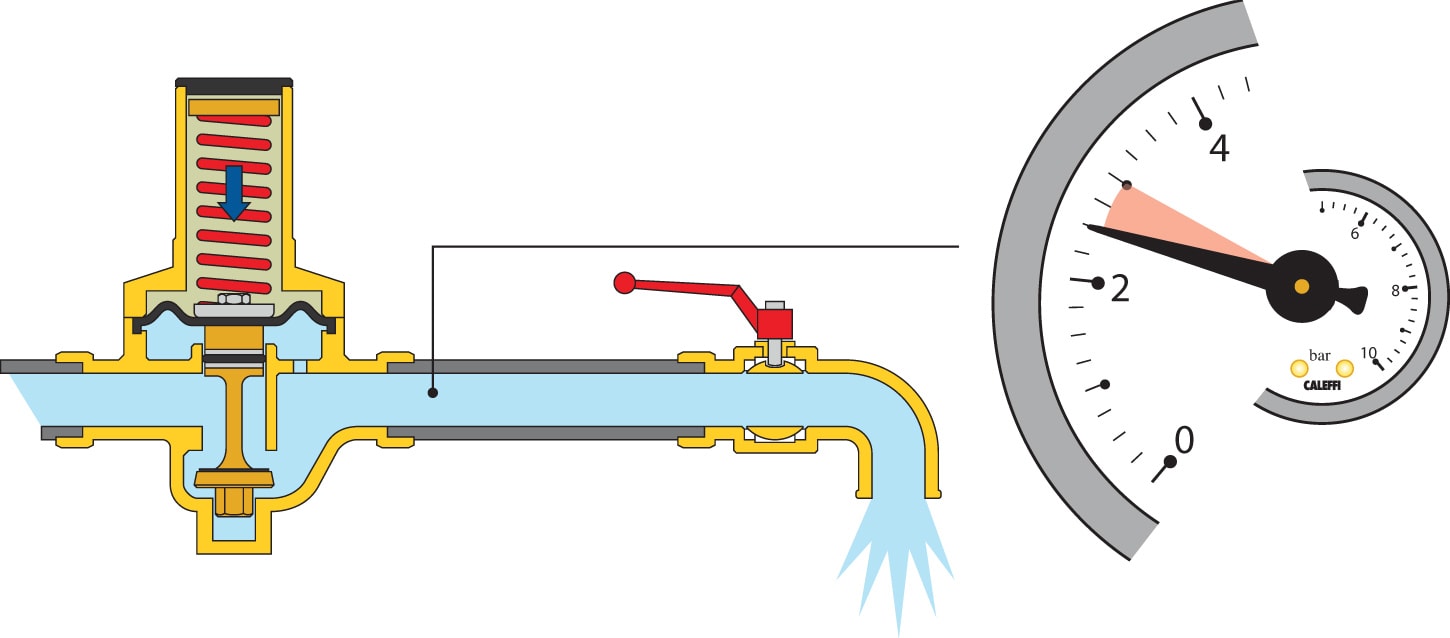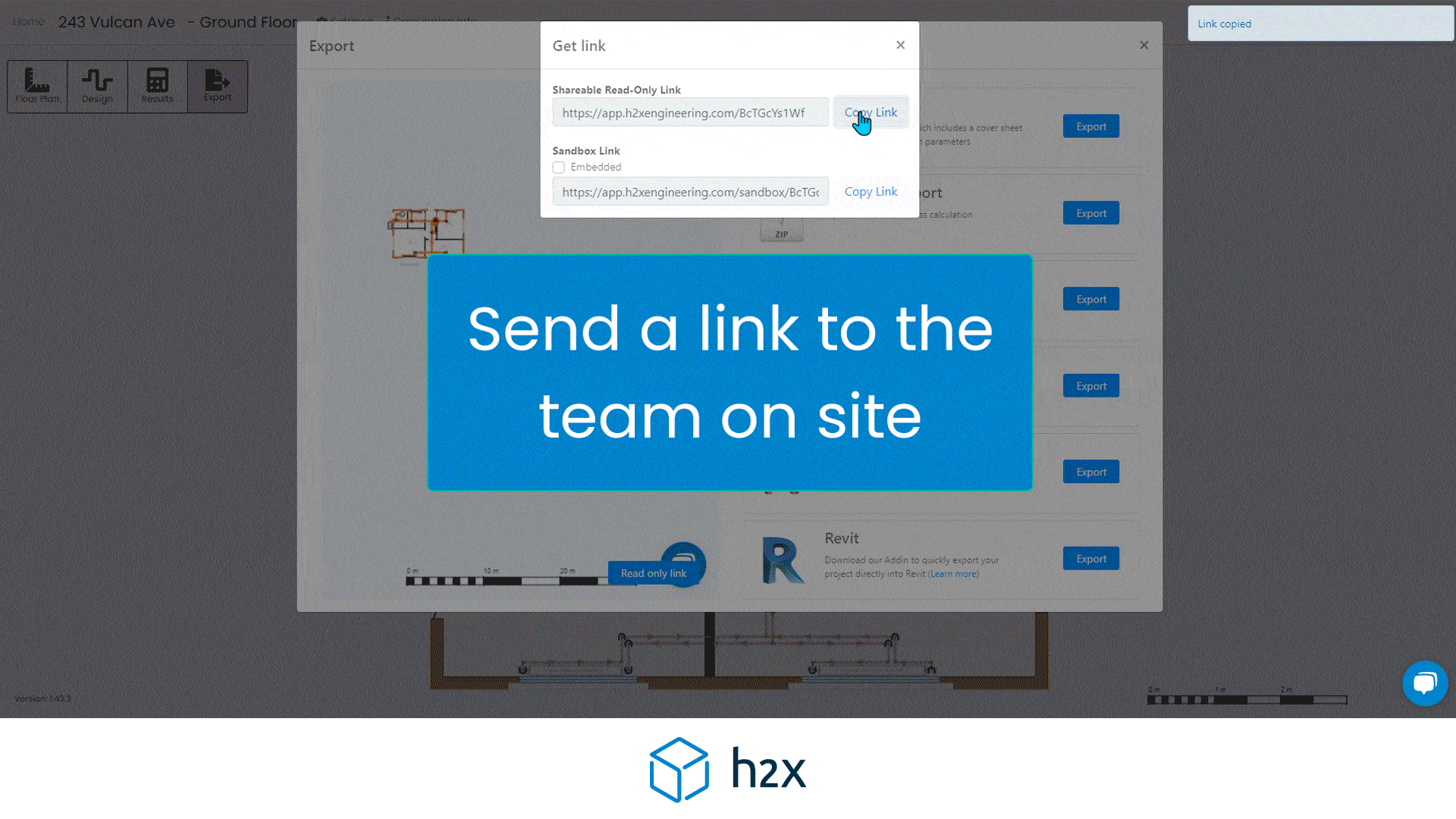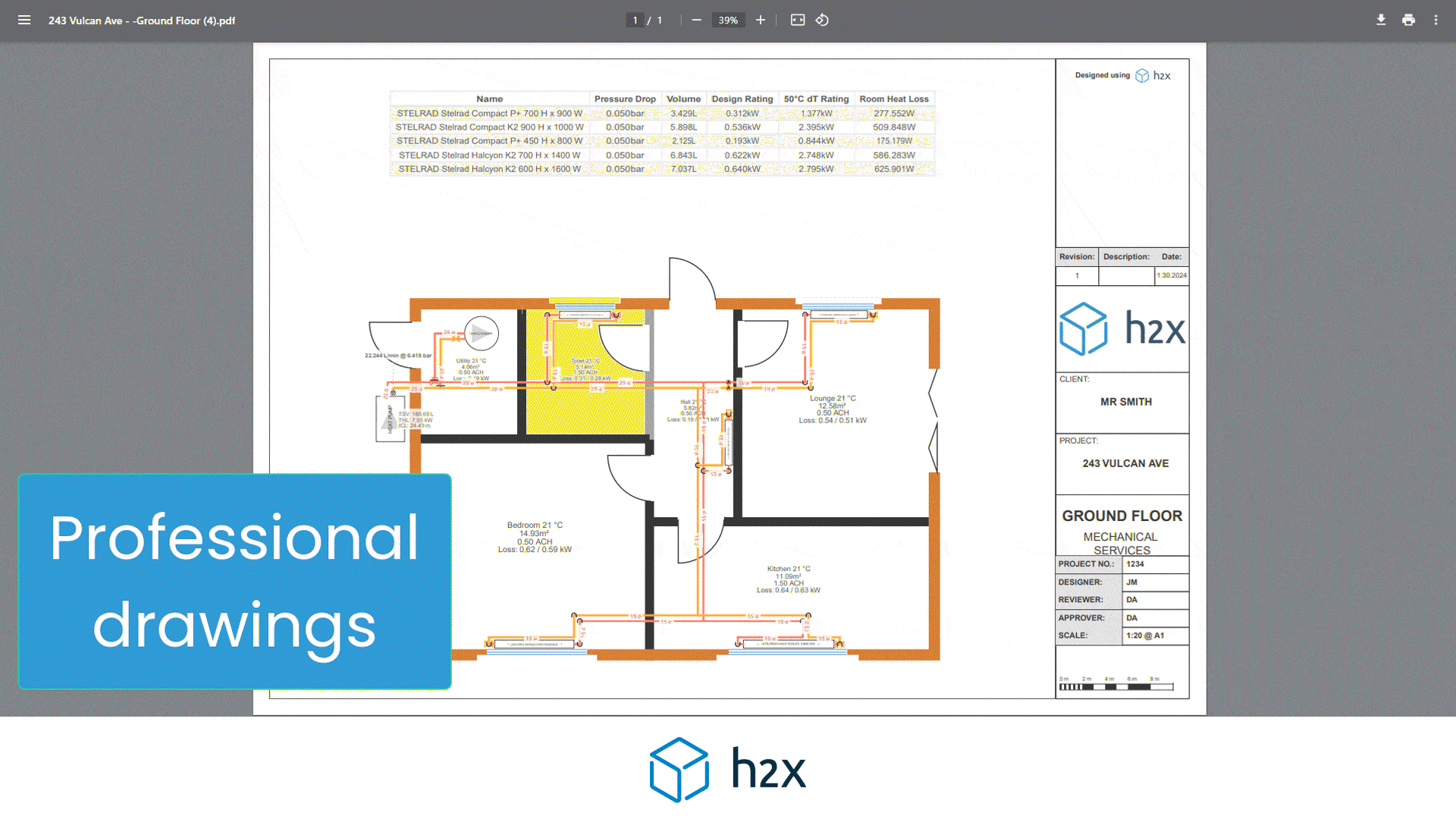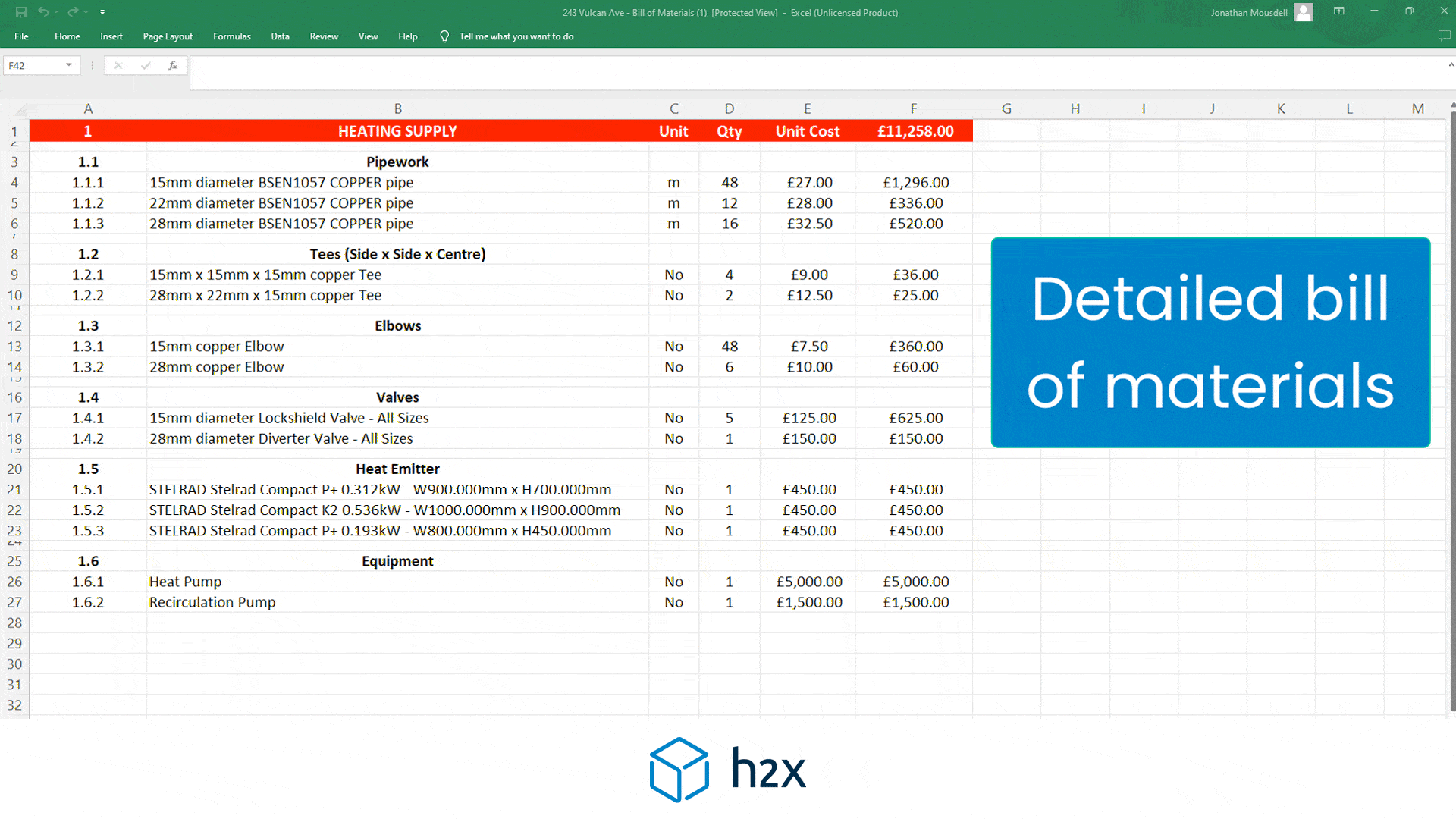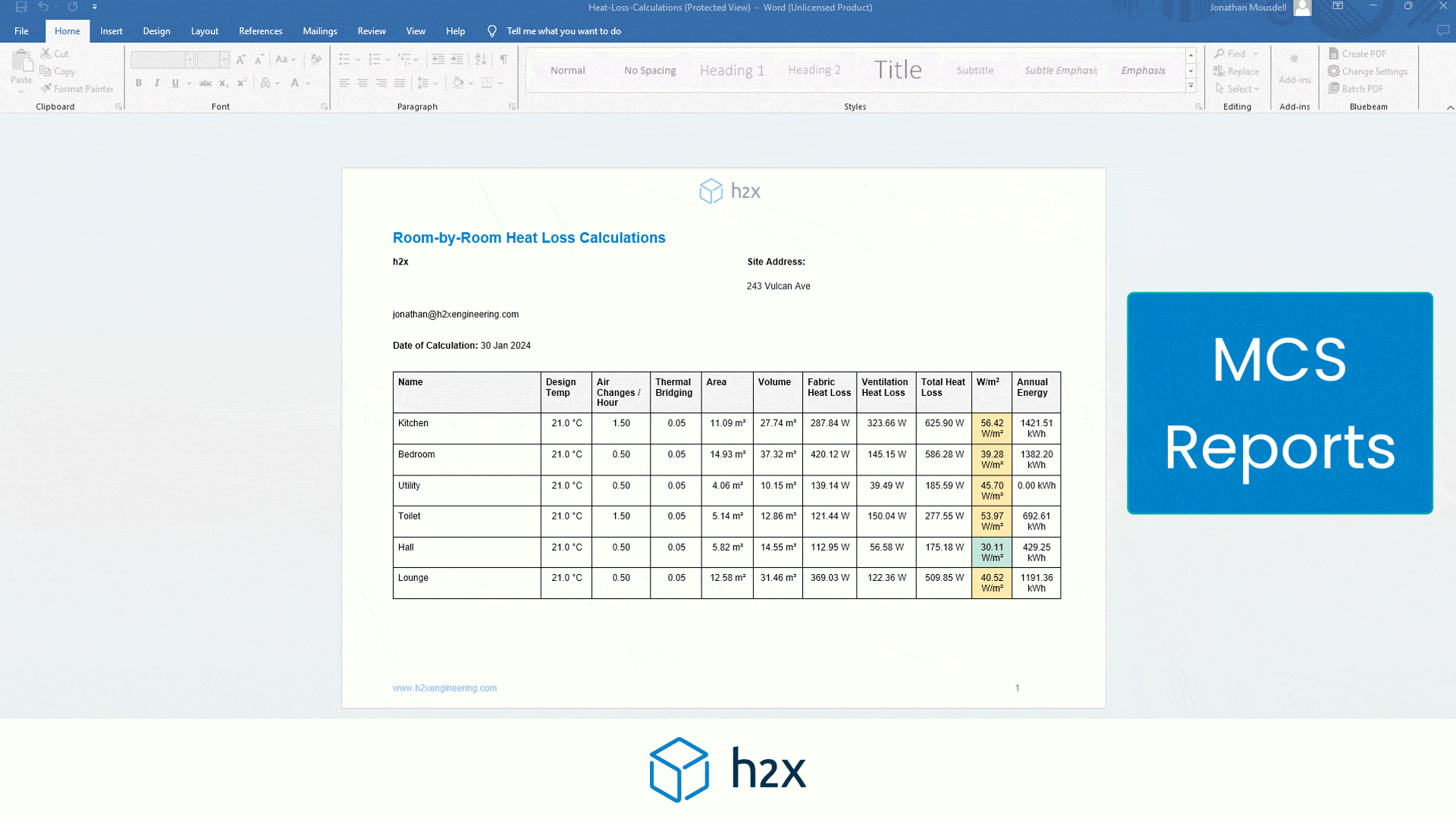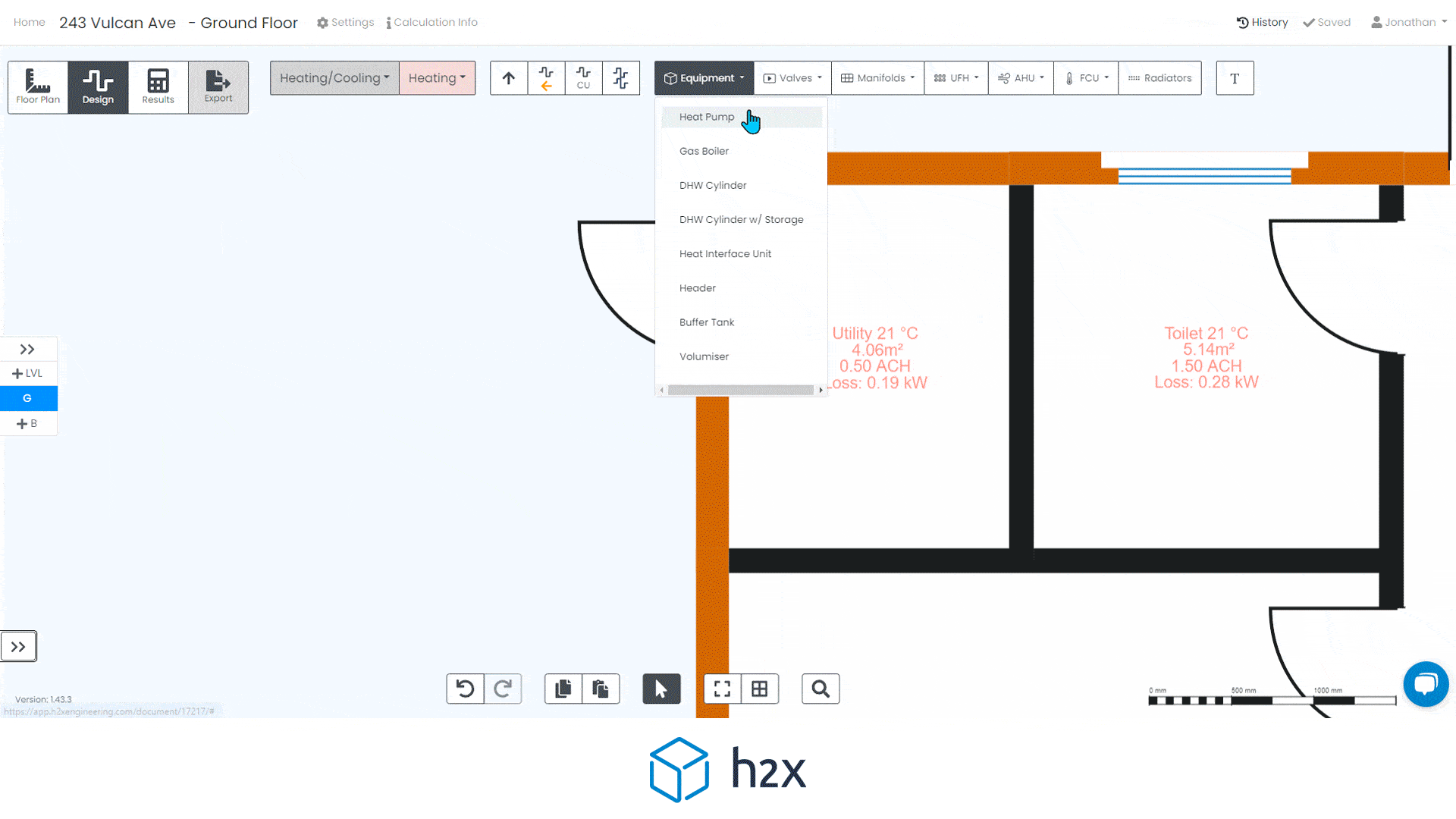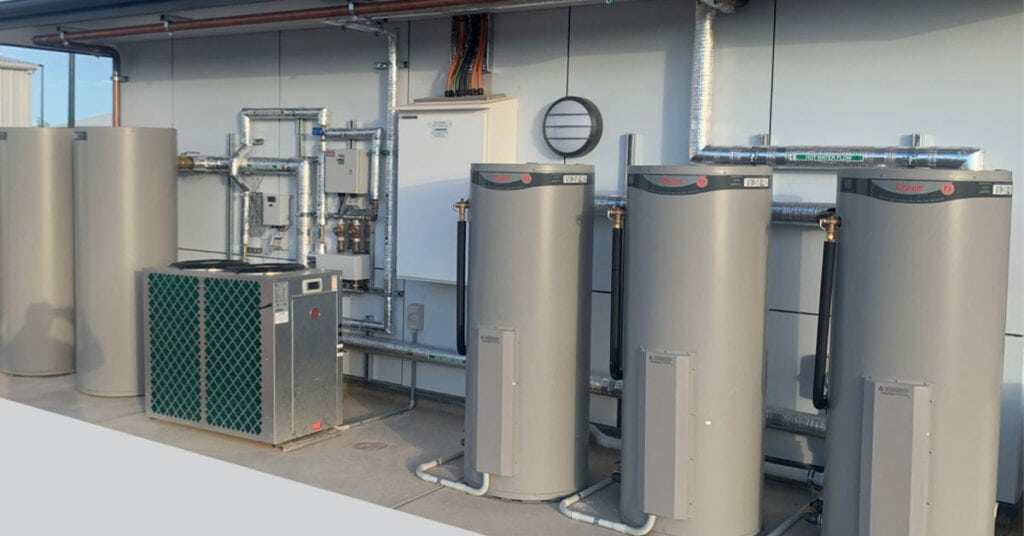
Heat Pump Efficiency in Tropical Climates by Rheem
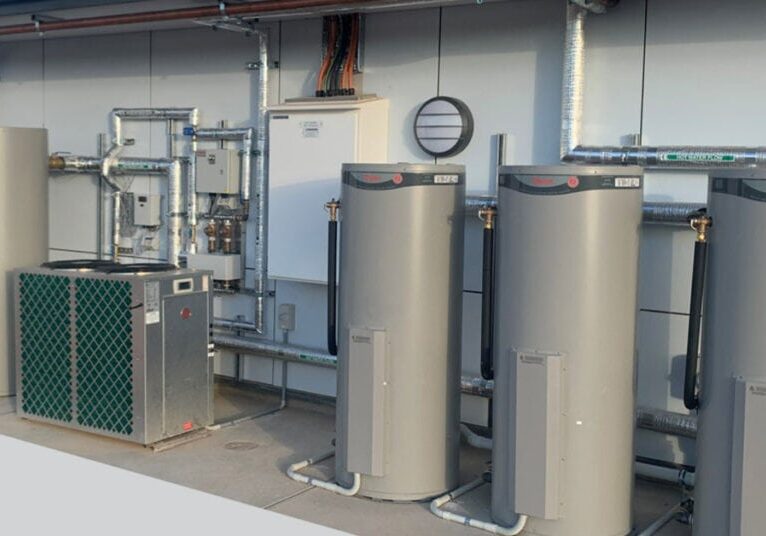
Understanding Heat Pump Performance in Various Climates
The performance of domestic hot water heat pumps depends on factors like ambient temperature and humidity.
Typically, heat pumps achieve optimal performance in high ambient and high humidity conditions, such as those found in tropical climates.
This article looks into the advantages of using heat pumps in tropical regions and clearly compares different systems for better decision-making.
Heat Pump Ratings and Comparisons in Australia
In Australia, heat pump ratings are not regulated, leading to confusion when comparing different systems.
Nonetheless, well-established brands use similar methods for presenting product performance data.
Rating conditions generally involve a 20°C ambient temperature with 60% relative humidity (RH), also referred to as a 20°C wet bulb.
Another factor impacting heat pump performance is the entering water temperatures (EWT) and leaving water temperatures (LWT).
Improved performance is observed with colder EWT/LWT, which declines as these temperatures increase.
Typical temperatures for sizing are at a 50°C temperature rise (Delta T), with 15°C incoming cold water and 65°C hot water.
The mid-point of this scale is 40°C, and it is at this point that the water heater’s performance should be considered as the ‘average’ performance.
However, be aware that with colder water entering, the heat pump would be more efficient, but the performance would decrease at the end of the cycle.

The table above highlights the effect that ambient temperature and water temperature have on heat pump performance.
FREE eBook: Everything You Need To Know About Heat Pumps
The Impact of Ambient Temperature and Water Temperature on Heat Pump Efficiency
A heat pump’s efficiency is greatly affected by ambient temperatures and water temperatures.
For example, the Rheem model 953016 commercial heat pump has a rated performance of 17.46 kW and a coefficient of performance (COP) of 4.0 at 39/45 EWT/LWT.

However, in tropical conditions with higher average temperatures, the heating output can increase by up to 30% (22.64 kW), and the COP can increase by 26% (5.05).

This improved efficiency, combined with a lower temperature rise requirement and a preference for cooler showers in tropical regions, can significantly impact the sizing of heat pump systems and their return on investment.
The Importance of Heat Pump COP
The coefficient of performance (COP) is a crucial metric for determining the energy efficiency of a heat pump.
It measures the ratio of the heating output to the electrical energy input.
A higher COP means the heat pump is more efficient at converting electricity into heating or cooling.
For example, a heat pump with a COP of 3.0 is 300% efficient, providing three units of heat or cooling for every unit of electrical energy consumed (e.g. 3 kW of output for 1 kW of input).
It is essential to consider the Seasonal Coefficient of Performance (SCOP) too, this metric measures the energy efficiency of a heat pump over an entire heating season. Unlike the COP, which provides a snapshot of the heat pump’s efficiency at a specific moment.
Heat Pump Sizing Comparison: Sydney vs. Townsville
To demonstrate the difference in heat pump sizing between various climates, let’s consider the following comparison of an apartment block in Sydney and Townsville:
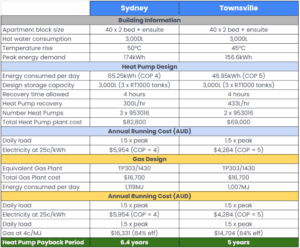
*Note: Gas and electricity rates vary between states. Averaged values have been used to facilitate a like-for-like product comparison.
The Benefits of Heat Pumps in Tropical Climates
Tropical climates offer an ideal environment for heat pumps due to their higher ambient conditions, which enable higher COP and heating capacity.
As a result, heat pumps can be used more effectively in tropical regions, leading to numerous benefits, including:
- Reduced Plant Cost: Smaller plant requirements in tropical climates can lead to lower initial investment costs for heat pump systems.
- Lower Running Costs: Higher COP values in tropical conditions translate to more energy-efficient heat pumps, resulting in decreased operational expenses.
- Faster Return on Investment: The combination of reduced plant costs and lower running costs can help property owners recoup their investment in heat pump systems more quickly.
- Simplified Plant Complexity: With fewer components and smaller systems, heat pump installations in tropical climates can be easier to manage and maintain.
- Decreased Ventilation Requirements: The higher efficiency of heat pumps in tropical climates reduces the need for extensive ventilation systems, further simplifying the installation process.
- Smaller Footprint: Due to their smaller size, heat pump systems designed for tropical climates can fit into more compact spaces, which is especially beneficial for properties with limited room for mechanical systems.
Conclusion
In summary, heat pumps are highly effective in tropical climates, offering enhanced performance and efficiency compared to systems in colder regions.
Property owners in tropical areas can take advantage of these benefits by choosing heat pumps designed to work optimally in high ambient and high humidity conditions, leading to cost savings and improved energy efficiency.
Design with Rheem’s Heat Pumps in h2x
Are you looking for an efficient and convenient way to select and size heat pump equipment for your next project?
Rheem, a leading manufacturer of heat pumps, has teamed up with h2x’s design software, to provide a seamless specifying experience for engineers and contractors.
Here’s how the Rheem-h2x integration benefits you:
- Streamlined Design Process:
- h2x’s design software will automatically suggest the most suitable Rheem heat pump model for your specific project requirements.
- This eliminates the need to browse through product catalogs and communicating with external parties, saving you time.
- Precise Sizing:
- h2x’s software takes into account various factors such as the ambient temperature, water temperature, delta T, and electrical power availability to specify the correct model.
- With Rheem’s heat pump specifications readily available in the software, the equipment specification will dynamically update as your design parameters change.
By taking advantage of this powerful collaboration, you can save time, enhance efficiency, and deliver optimal heat pump system performance for your projects.
FAQs
What is a heat pump?
A heat pump is an energy-efficient device that transfers heat from one location to another, typically from the outside air to the interior of a building, to provide heating or cooling.
How does a heat pump work?
A heat pump works by using a refrigeration cycle to absorb heat from the ambient air and transfer it to the water or indoor air, depending on the system. In heating mode, the heat pump absorbs heat from the outside air and releases it indoors. In cooling mode, the process is reversed.
Are heat pumps energy efficient?
Yes, heat pumps are generally considered energy efficient, as they can provide up to 3-4 times more heat energy than the electrical energy they consume. This efficiency is measured by the coefficient of performance (COP).
Can heat pumps be used in cold climates?
While heat pumps are highly efficient in tropical climates, they can also be used in colder climates with the right technology. Some heat pumps are specifically designed to work efficiently in low-temperature environments.
What is the lifespan of a heat pump?
The average lifespan of a heat pump ranges from 10 to 15 years, depending on factors such as usage, maintenance, and the quality of the unit.
How much does a heat pump cost?
The cost of a heat pump can vary significantly based on factors such as the type, size, and brand of the unit. Installation costs can also impact the overall expense. It’s essential to consult with a professional to get an accurate estimate for your specific needs.
Want to know more abut Rheem’s Commercial Heat Pump range and other hot water solutions?
Check out their range here – Commercial Heat Pumps | Commercial | Products | Rheem Site
Or read this case study – https://blog.rheem.com.au/blog/rheem-delivers-high-volume-hot-water-solution-for-mudjimba-beach-holiday-park/
h2x: All-In-One Tool for Calculating, Designing, Estimating, and Paperwork

What's in the Pipeline?
Get access to our monthly roundup of news and insights
You may unsubscribe from these communications at any time. For more information, please review our Privacy Policy.
Testimonials
What Installers Say
What Consultants Say
A game changer for the humble plumber. Incredible.
Brad Winkel
Director at Queenstown Plumbing
Brilliant, simple and easy to use. Game changer.
James Major
Director at Hubb
Big time game changer to the industry!
Viv Jude
Director at UHC
Incredible software! Super user-friendly and allows you to save so much time.
Devni Gamage
Engineer at DMA
h2x is great software, our company use it nearly every day. It is easy to use with direct conversion from h2x to Revit.
Callum Craig
Engineer at WDE
h2x is fantastic software. It is very easy to use and the ability to output to Revit is a fantastic time saver.
Joe Kirrane
Engineer at MEP



